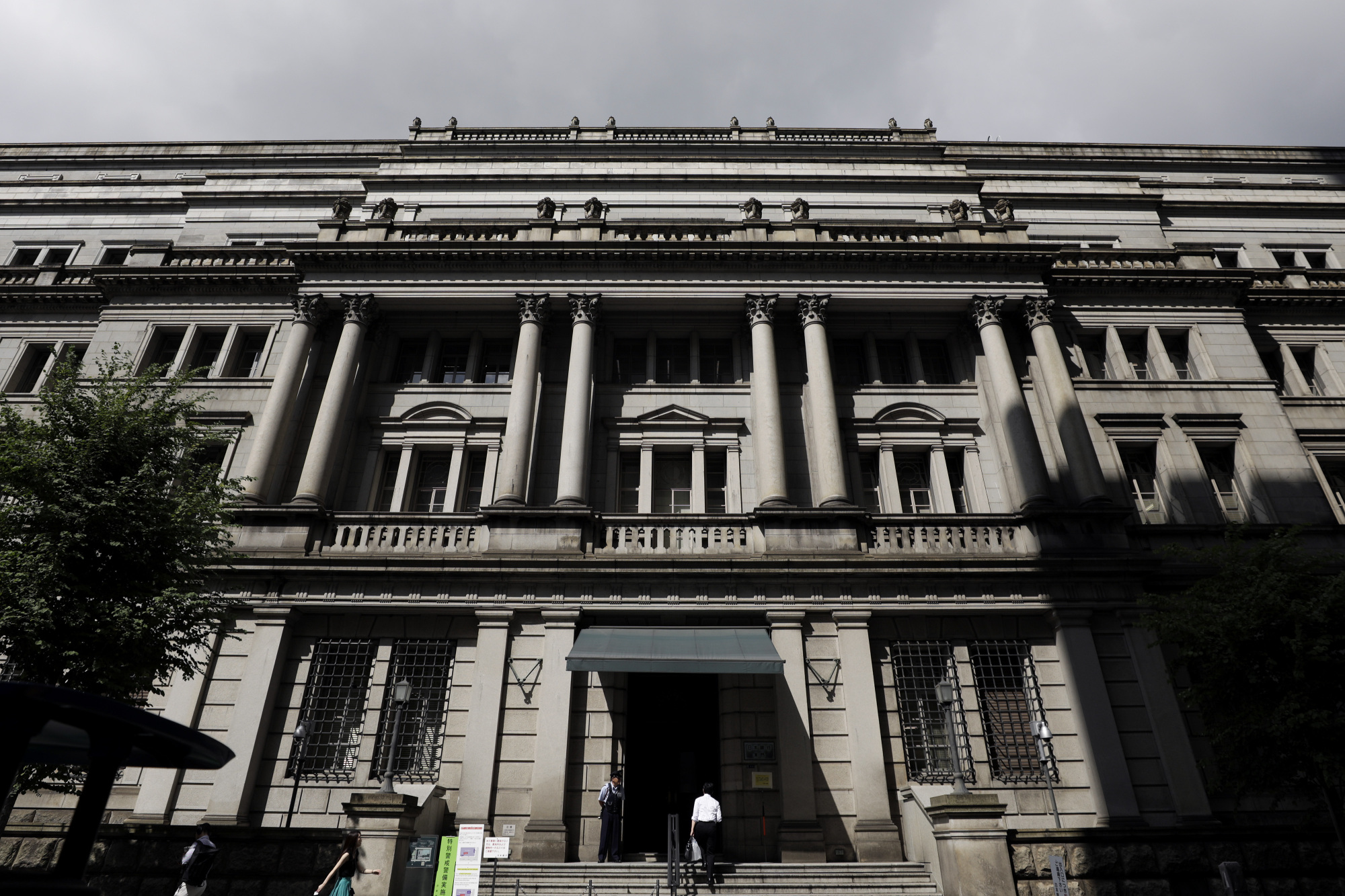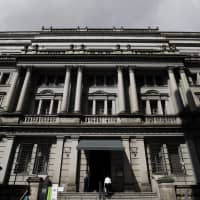The Bank of Japan is more likely to wait until after next year's increase in the consumption tax before taking action to tighten monetary policy, given increasing risks to the economic outlook and recent market turbulence, a growing number of economists say.
All 49 of the economists surveyed by Bloomberg expect the BOJ to leave policy unchanged at its Dec. 19-20 meeting, with 88 percent forecasting that the bank won't raise its long-term interest rate before the end of 2019 compared with 78 percent in the previous poll.
Global stock markets have suffered sharp falls since early October as fears intensified over the U.S.-China trade war, signs of weakness in the Chinese economy and a slowing of the global tech cycle.
The economy already faces a large hurdle with the raising of the consumption tax rate to 10 percent from 8 percent in October, and previous increases in the levy have caused the economy to shrink.
While Prime Minister Shinzo Abe's administration is determined to take more action this time to even out fluctuations in consumer demand stemming from the tax increase, 47 percent of the surveyed economists say it's too early to judge if this will help the BOJ move forward with policy normalization. Some 33 percent don't think the measures will help a move toward normalizing policy.
About a third of respondents expect the BOJ to allow 10-year government bond yields to move by more than 20 basis points around its zero percent target by the end of 2019.
While expectations that oil and cheaper telephone charges will weaken inflation next year, just 6 percent of economists predict additional stimulus measures in 2019.
Among additional stimulus measures, more economists thought the central bank would add to its buying of equity funds than thought it would expand its bond buying.




